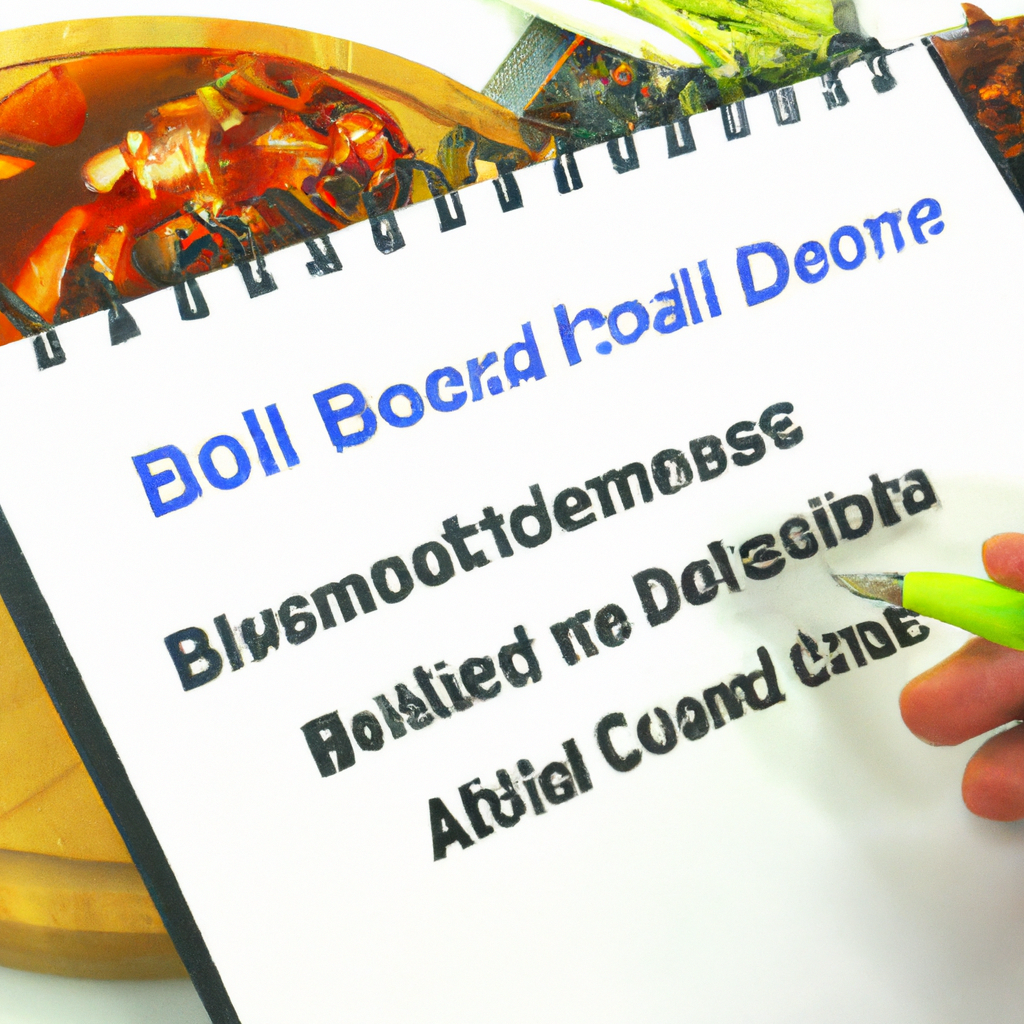From the little known effects of spicy food to the power of probiotics, managing inflammation in the bowel through diet can be an effective approach for individuals suffering from Inflammatory Bowel Disease (IBD). While dealing with complex symptoms such as ulcers, abdominal pain and persistent diarrhea, understanding the dietary management tips supporting improved gastro-intestinal health can be life-changing. In this article, we will take a closer look at this dietary approach to manage IBD.
1. Unraveling the Gut: Understanding the Intricacies of Inflammatory Bowel Disease
Inflammatory bowel disease (IBD) is a debilitating condition that carries with it an immense amount of physical and mental anguish. It’s true that many of the intricacies of the disease are still a mystery, but over the past decade researchers have made great strides in deducing some of its methodological cellular mechanisms.
Genetically-Influenced Village Quilt: Through genome wide association studies that analyze the genetic diversity of thousands of subjects in varying populations, researchers have observed an increased risk for IBD onset in certain genetic haplotypes, creating a patchwork of selective risk for different ethnic groups. The greatest genetic associations have been seen in populations of European ancestry; however, recent studies have shown that Native American and Hispanic individuals may also be predisposed.
Intestinal Epithelium, Barrier Against Pathogens: The intestinal epithelium, which forms the barrier between the environment and the intestines, is the first line of defense against invaders like bacteria and viruses. The integrity of this barrier is maintained through tight junctions, which provide a defense against gut microorganisms. When these junctions or the surrounding epithelium are compromised, the gut inflammatory response can be triggered.
Immune Cells – Allies and Invaders: Immune cells are both our ally and our enemy in IBD. While healthy innate and adaptive immune processes help to establish a dietary and environmental baseline, an overzealous immune response can lead to inflammation and gut damage. Current therapies seek to regulate and improve the balance between the beneficial and harmful immune pathways.
Causes of Inflammatory Bowel Disease:
- Infection
- Genetic predisposition
- Environmental factors
- Imbalance of immune cells
- Changes in the intestinal microbiome
With advancements in genetic mapping, increased understanding of the microbiome, and novel immunotherapies, it’s hopeful that the current trajectory in IBD research will lead to improved therapeutics and quality of life for IBD sufferers.
2. Nourish and Flourish: A Nutritional Roadmap for Managing Inflammatory Bowel Disease
3. From Plate to Health: Expert Tips on Tailoring Your Diet to Control Inflammatory Bowel Disease
Inflammatory bowel disease can be a difficult disorder to manage, but understanding your diet is key in keeping IBD symptoms in check. These expert tips can help tailor your diet to suit your needs.
- Alter Your Nutrition Intake – Eating a balanced and nutritious diet can boost your energy, health, and help reduce your symptoms. An anti-inflammatory diet can be particularly helpful by limiting processed foods, refined sugars, and trans-fats. Adding whole food sources of omega-3 fatty acids such as walnuts, chia seeds, and fatty fish may also reduce inflammation.
- Eat Regularly – Skipping meals can lead to low energy and blood sugar imbalances which can trigger IBD. Make sure to eat regular small meals throughout the day and snacks in-between.
- Be Mindful of Your Fiber Intake – Eating adequate fiber can improve your digestion and reduce inflammation. Take note of types of fiber – some fiber sources can worsen IBD-related symptoms.
Consult with nutrition experts or a nutritionist to learn what type of diet is best for you. Eating plans often recommended for IBD include the low residue diet, low fiber diet, and gluten-free diet. To create an eating plan tailored to you, a nutrition coach or dietitian can provide a custom nutrition plan that balances your food preferences with your health needs.
A few other dietary tips to keep in mind when managing IBD: steer clear of spicy foods, avoid foods containing added sugars, and introduce probiotics and prebiotics into your diet. Probiotic strains like Lactobacillus plantarum, Lactobacillus rhamnosus, Bacillus coagulans, and Saccharomyces boulardii have all been found to be helpful in managing IBD.
Learning how to carefully manage your treatment and dietary needs with inflammatory bowel disease can require an adjustment, but this can have great long-term benefits. Research options for you and create your own personalized diet plan to ensure the best way to control your symptoms.
4. Finding Harmony Within: Exploring Dietary Strategies to Soothe Inflammatory Bowel Disease
Living with Inflammatory Bowel Disease (IBD) can turn your life upside-down. Fortunately, there are ways to reduce the inflammation and discomfort of IBD. By exploring dietary strategies, we can find harmony within our bodies and help soothe the pain from IBD.
Overall Diet
The most important dietary strategy to help manage IBD is by eating a balanced diet. Aim to include a variety of colors and textures in your daily diet, and consider these key components:
- Lean proteins – fish, poultry, eggs, and vegetarian-friendly sources like tofu.
- Plenty of fresh veggie and fruits – load up your plate and aim for more variety from day-to-day.
- Whole grains – choose more complex carb sources like quinoa, barley, and oatmeal instead of simple, refined carbs.
- Healthy fats – such as avocados, nuts, and seeds.
Foods to Avoid
In general, it’s best to avoid processed foods and choose minimally-processed whole food options instead. Some people with IBD have food sensitivities and find that particular foods cause flare-ups. In this case, it may be helpful to keep an eye out for foods that your body can’t handle.
Common foods to avoid include:
- Dairy
- Caffeine
- Alcohol
- Fried foods and high-fat meals
It’s important to note, however, that everyone’s sensitivities to food vary. Pay attention to your body and learn what works best for you.
Consider Supplements
Depending on your specific situation, there may be dietary supplements that could prove beneficial for relieving IBD symptoms. Supplements such as turmeric, omega-3s, and probiotics have been known to have helpful effects. Be sure to speak to your doctor before taking any supplements.
Eating a nutritious and balanced diet and avoiding foods that may trigger flare-ups can help reduce the symptoms of IBD. With the right dietary strategies, you can find harmony within your body and reduce the effects of IBD.
So while living with Inflammatory Bowel Disease can be difficult, arming yourself with dietary management tips and techniques can help to make the journey a bit easier. With these tools, you’ll have a better chance of living a more balanced life and of managing your symptoms.


